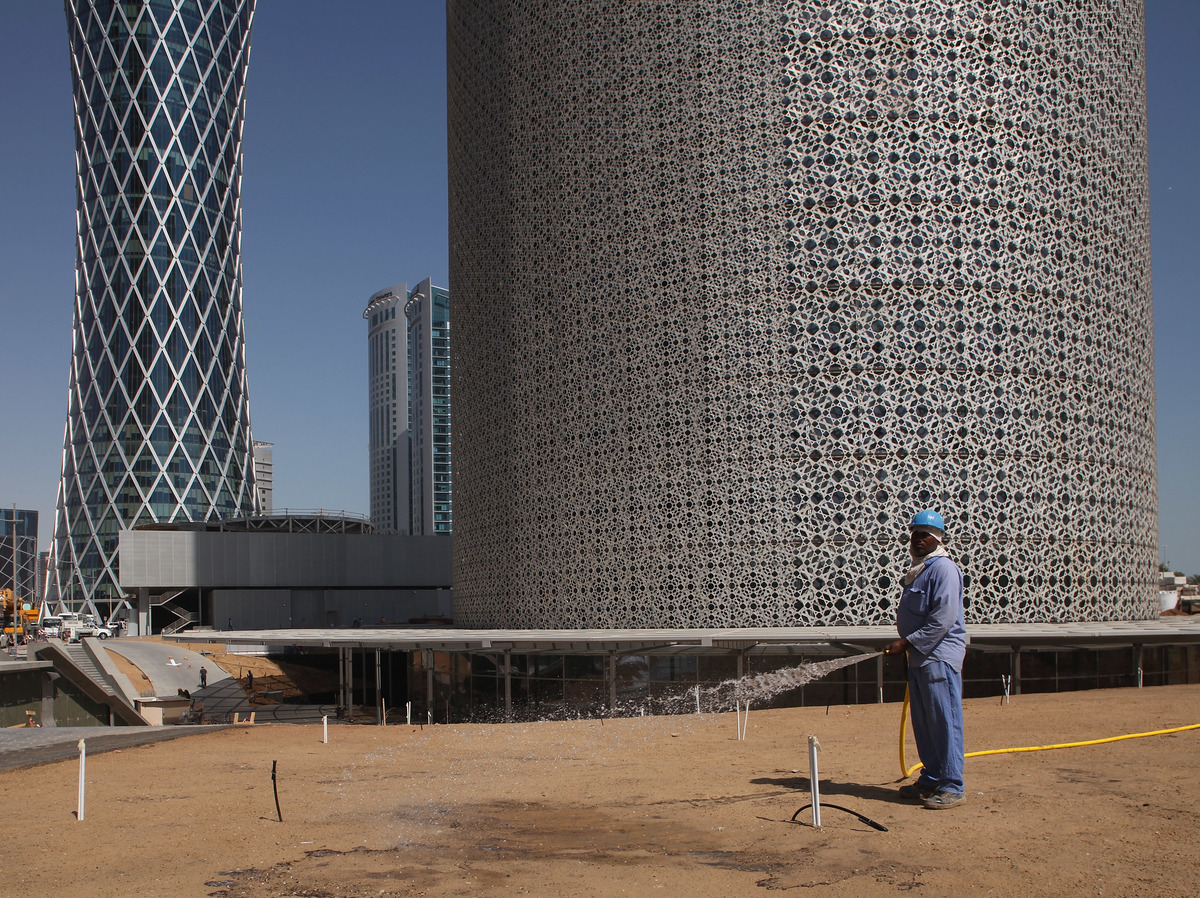
Its been reported that more than 6,500 migrant laborers died in the course of the construction work for the World Cup over the last twelve years. Sean Gallup/Getty Images hide caption

Its been reported that more than 6,500 migrant laborers died in the course of the construction work for the World Cup over the last twelve years.
Sean Gallup/Getty ImagesBillions will be watching when the men's soccer World Cup begins in Qatar this month. But the country's human rights record will also be in the global spotlight during the tournament.
A 2021 investigation by The Guardian revealed that more than 6,500 migrant laborers died during the construction of World Cup facilities and infrastructure.
There are also questions about how LGBTQ soccer fans and players may be treated in Qatar, where homosexuality is illegal.
We hear from one man who is speaking out about the lack of LGBTQ rights in his home country. And we speak with Minky Worden of Human Rights Watch, one of the groups that has been putting pressure on Qatar ahead of the World Cup.
Email us at
This episode was produced by Brianna Scott. It was edited by William Troop. Our executive producer is Sami Yenigun.

 Live Radio
Live Radio